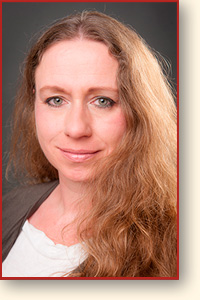
What are Arousal disorders?
Arousal disorders (AD)
Sexual Arousal is conceptionalised as the physical, emotional and mental readiness to engage in sexual activity with yourself or others. It means that the inborn arousal reflex is triggered, consisting of increased blood flow through and swelling of the genitals and consecutive and lubrication/erection.
How and if the physical happenings are perceived and judged by the person can vary widely, depending on their personal history and learned skills of self – perception and sexual learning.
Lack of sexual interest or desire disorders (DD) used to be treated as a separated diagnosis, but has been merged with arousal disorders, at least for women, in the DSM 5, a diagnostic manual developed by hundreds of specialists worldwide and hosted by the American Psychiatric Association (APA).
It seems plausible, that if you have difficulties with physical, emotional and mental arousal, that your interest and desire can be severely affected to the degree of avoidance and discomfort.
There are several large studies that have researched the prevalence of AD and DD with different criteria and assessment methods and in different cultures and have found prevalences from 2.6 to 43%, with an average of 22 – 31%.
What are symptoms of arousal / sexual interest disorders?
Using the above mentioned DSM-5, you would need to have at least 3 of these conditions in more than 75% of all sexual encounters for more than 6 month and be significantly distressed by this:
Absent or reduced interest in sexual activity, sexual/erotic thoughts or fantasies, sexual excitement/pleasure during sexual activity.
No or reduced initiation of sexual activity, and unreceptiveness to a partner’s attempts.
Absent or reduced sexual interest/arousal in response to any internal or external sexual/erotic cues (e.g., written, verbal, visual), absent or reduced genital or nongenital sensations during sexual activity.
The sexual dysfunction can’t be better explained by a nonsexual mental disorder or severe relationship distress (e.g., partner violence) or other significant stressors and is not caused by a substance or medication or a medical condition.
AD or DD can be primary (has always been like that) or secondary (acquired, meaning it began later in life).
It can be generalised or situational, meaning it only occurs under certain circumstances f.ex. certain types of stimulation, situations, or partners.
Causes of Arousal/ Sexual Interest disorders
There can be numerous causes like medical, psychological and relationship problems. They need to be carefully assessed for each individual.
Medical causes can be f.ex. conditions, that compromise nerve function, cause disturbance of hormones or blood flow to the genitals (f.ex. longterm Diabetes and also menopause!) or drug side effects. It is always a good idea to talk to a GP, Urologist or Gynecologist about this if you think that this could be the case.
Psychological (and/or physical) causes can be pain or fear of pain or conflict, guilt, depression, anxiety, stress, trauma, negative or poor body image and lack of communication of needs and preferences.
The sensations felt during sex and the experienced pleasure are frequently not high enough for a person to bother. This is often linked to lack of sexual learning and poor self – perception. Genitals, like other parts of the body, need to be represented in the brain by self – exploration. Children, especially girls, are often not supported when they start to explore, but fortunately, it is never too late.
Many people use arousal patterns involving high static muscle tension and/or high pressure and hold their breath, which may work fast, well and efficiently in masturbation, but may be less suitable for partner sex. This can lead to frustration, avoidance and lack of interest as well.
Relationship problems can also lead to adverse feelings against the partner and avoidance.
DD can develop, if partners have very different sexual preferences/needs and/or stereotype routines that have become boring and/or are not satisfying or if there is anger and lack of respect for the other person.
Arousal / Sexual Interest Disorders: Sexual Therapy
Depending on what causes are individually assessed and evaluated, therapy can involve initiating and supporting new learning steps about ones body, arousal patterns, sources of arousal and sexual profile. If this is the main focus, it often requires individual therapy and takes some time and willingness to work on it also between sessions at home.
If the relationship aspects, the behavior and feelings towards the partner seem to be the more central cause, it may be beneficial to work with both partners and consider couple counseling if you and your partner are open to this.
We can discuss all options in the session and find out, what you would like to achieve and if and how this could work.
Therapy is always a good option to handle and advance things. Don’t stay trapped in a situation that you are not happy with.
Please contact me by email or phone for your first appointment.
